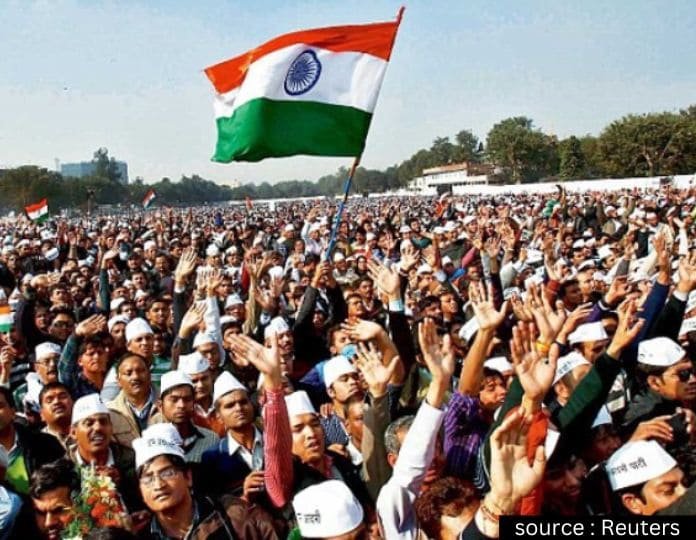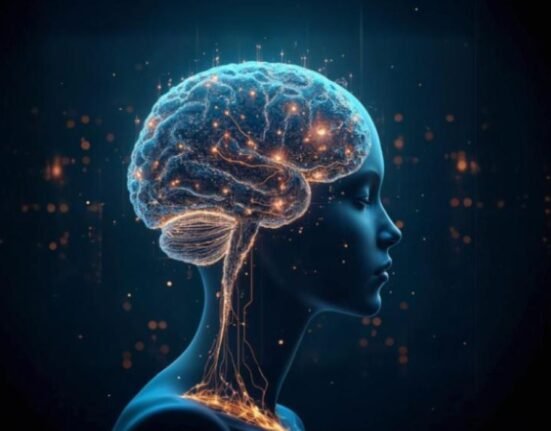Voting is a citizen’s right as much as a citizen’s duty. If you reside in a democratic nation, then the state of that nation is dependent on your votes. Elections have never been about the politicians, it is about the people. People, their beliefs, opinions and faith lie at the crux of elections and eventually, democracy. The most popular definition of democracy talks about how it is a government for the people, by the people and from the people. We vote to have those elected who we believe can take our stand in front of an entire nation. But what drives this? How do we put so much faith into one person? What is the psychology behind voting behaviour?
Given the recent Lok Sabha elections, it is important to understand how politicians form certain images in the voters’ minds, and how certain parties and figures leave a lasting impact on a collective unconscious which drives the voters to grant them positions of power. In this article, we will uncover the elements that drive voter behaviour, the role of media in elections and how various social structures help frame our outlook on the formation of governments.
According to Assistant Professor, Shalini Mittal, “In the context of attitude change theories, the Yale-Hovland model highlights three key factors that influence attitude change. Firstly, source characteristics may include factors like the attractiveness, trustworthiness, and credibility of the source. Secondly, audience characteristics, which include the predispositions, traits, culture, and beliefs of the audience. Lastly, message characteristics, encompass the content, affective tone, and structure of the message.”
“Applying these principles to political parties, their image and reputation play a significant role in shaping public perception. For instance, a party that has established itself as trustworthy by delivering on its promises gains credibility. Therefore, the public is more likely to believe the messages conveyed by such a party.”

“Regarding the emotional component of messages, political parties worldwide, whether in India or abroad, often focus on issues with emotional significance. For instance, in the US, the abortion debate has become a focal point due to its emotional nature. In contrast, in India, issues like religion, caste, and nationalism hold more emotional weight for the public.”
“Furthermore, the characteristics of the audience play a crucial role in determining which issues resonate emotionally. What may be emotionally significant for one society may differ from another. Therefore, political parties adapt their strategies to appeal to the target audience on issues that hold emotional salience for the said audience.”
Related: Media Psychology: Influence of Media on Behavior and Perception
Broad Theories in Voter Psychology
Psychology in the context of elections has primarily focused on politician behaviour and tactics, however, an integration between political philosophy and psychology has given rise to a newer field which has research focusing on voter behaviour. Similar to how multiple psychological theories underlie behaviour, so does voting behaviour. Some of these have been explained briefly below:
- Macro-Sociological Perspective. This perspective analyses voter behaviour from the viewpoint of the social structures and institutions already in place. For example, voters tend to vote for those they think will work for the profit of the social identity they are associated with. This perspective emphasises the role of ascribed (e.g. caste) and achieved (e.g. class) identity.
- Micro-Sociological Perspective. This perspective focuses on smaller groups and their influences rather than the influence of major social institutions. For example, if a youngster is surrounded by people supporting a certain political ideology, he is very likely to align his beliefs according to his friend group. This perspective emphasises the role of group dynamics.
- Utilitarian Perspective. Rooted in the philosophical school of utilitarianism, this perspective rationally describes that voter behaviour is driven by, in very reductionist terms, our hedonistic inherent ideals which focus on craving pleasure and avoiding pain. This perspective emphasises how people tend to perform actions that they believe would result in the maximum amount of happiness for the maximum number of people.
- Ideological Perspective. This perspective holds that a voter is most likely to align themselves with a political party if its ideology and actions are in alignment with the voter’s inherent morals and values. For example, someone with Gandhian morals would wish to align themselves with a political party that propagates Gandhian ideals.
- Cognitive Perspective. This perspective emphasises the role of various cognitive biases in voter behaviour and action. It elaborates on how our perceptual processes and thinking patterns affect our decision-making in terms of voter behaviour.
Socio-Political Factors in Voting
As mentioned above, one of the biggest aspects that play a role in voter behaviour and psychology is the larger social and political institutions that an individual is a part of. The larger structures in place influence our day-to-day lives in extreme minutes which becomes obvious to the dedicated observer. Let us take a brief look at these.

Social Identity Theory
This theory, as proposed by Tajfel and Turner in 1979 holds that individuals tend to define their identity in terms of their membership in various social groups. This illustrates intersectionality in social identity as well which talks about how two aspects of one’s identity can be a conflict with one another as well. Moreover, if someone identifies as a girl and belongs to underprivileged sections of society can undergo intersectionality of oppression.
Research indicates that voters are likely to support candidates who belong to the same social group as them which is identifiable by their last names. Numerous scams take place here as well. Moreover, parties may appoint a ‘token’ member to represent underprivileged sections to be viewed as more open and inclusive.
What Social Institutions are at Play?
Social institutions such as socio-economic status, education as an institution, religion, caste and creed, gender and so on play an extremely important role in driving voter behaviour. It is highly unlikely to find a feminist voting for a political party whose leading figure has made misogynistic comments.
Religion as an institution rather than just faith can also work as a major force behind electoral campaigns. Individuals attach deep sentiments to their religious beliefs, thus they can be easily played to by politicians craving votes. Similarly, if oppressed sections of society feel represented by a political figure, they are more likely to give them their vote.
Social Identity and Identity Politics
The ascribed identity of a person is the societal institutions that you are born into and cannot change at any point in your life. Political parties strategically leverage the sentimentalities attributed to such facets of one’s identity to garner more support. Such forms of campaigning may lead to the betterment of certain sections of society but can also result in further fragmentation of society.
Read More: The Psychology of Self-Perception
Identity politics is based on affiliation with a particular social identity and further related propaganda. For instance, a party may subtly but surely associate itself with a preference for a particular social identity which will help in resonating with the voters in that social group thus making personal a bit more political.
Cognitive Biases and Decision-Making
Cognitive psychology talks about how there are various cognitive biases at play whenever we perceive any situation or carry out an action. Some of these cognitive biases which underlie voting decisions have been listed below:
Confirmation Bias
This bias is inherent to human nature and entails that individuals tend to look for evidence and believe information that confirms their previously held thoughts and opinions. A study published in 2020 in the Journal of Public Economics has indicated that voters tend to use private information to either support their extreme stands or further annihilate the opposition. Similarly, we can infer that any new information that is released about any candidate leading up to the Lok Sabha elections will be tainted by each individual’s confirmation bias whether in support of the candidate or against it.
Availability Heuristic
This is a mental shortcut that comes into play when individuals are faced with rather immediate decision-making. This holds that an individual will make an immediate decision based on the first example or case that comes to their mind about the topic at hand. Thus, if a candidate or a political party has left a lasting impact on a voter, they are likely to immediately think about that when they go to cast their vote.
Social Proof
Do you look at what your friends have ordered before you do? This phenomenon is known as social proof which holds that an individual tends to look at others’ behaviours and decisions before making their own, especially in confusing situations. A study published in 2010 indicated that people tend to vote for those they know have been favoured by people close to them.
Emotional Persuasion and Fear Mongering
Appealing to the voter’s emotions is a surefire way to get voters to develop a parasocial relationship with you which makes them vote for you. Let us look at some ways political campaigns attempt to touch our hearts and thereby influence voting:
- From rags to riches. An emotional backstory or history filled with striving and struggle tends to tug on the voter’s heartstrings and make them softer to the politicians’ ideas and opinions. This furthermore humanises and creates a personal connection to the politician which may turn voters in their favour.
- Emotional Persuasion. Words can be powerful. Certain politicians frame their ideas and policies in such a way that the voters are convinced by graphic examples that what is being done is correct. Persuading a voter’s emotional response to be in one’s favour is a trick many political parties attempt to master.
- Fear Mongering. Monarchy persisted for a long time because the rulers would convince the nobles that without them, they would be destitute and overrun by peasants. This method of painting oneself as the solution to all problems. Political parties may choose to highlight their opponents as the root cause of all misery in the nation thus making people fearful of a nation without the candidate using this tactic.

Role of Media and Messaging
Media plays a huge role in how viewers consume and perceive information. Any piece of news can be made positive or negative simply by altering words and changing graphics and sounds. Moreover, the kind of news a media channel likes to deliver can also colour its audience. While the media is supposed to be a neutral party, some outlets may deliver news that supports the narrative of a particularly powerful political party. Let us try and see just how and why voters may be so easily influenced by the media and their messaging.
- Easy to digest content: One of the most important aspects media outlets must be aware of to become more successful is to make their content easy to understand by their target population. Thus, information is distributed in an engaging way which helps individuals become informed more efficiently.
- Choice of information: Media outlets sold to a particular ideology may choose to only present stories and news that align with a particular party. Research conducted in 2005-2006 in the US showed that individuals who got a free subscription to conservative-leaning newspapers then showed higher alignment with those political beliefs in the following survey. This indicates that the form of media we choose to consume can also influence our voting decisions. Moreover, consuming selective forms of information combined with confirmation bias forms the basis of decision-making for many new voters.
- Propaganda: Philip Zimbardo, the infamous architect of the Stanford Prison Experiment, in his book ‘The Lucifer Effect’ talked about how people need a ‘The Enemy’ to rally against. Similar but not as extreme to the way Hitler used negative propaganda against Jewish people to garner support, nowadays, electoral campaigns involve villainising propaganda against their opponents. Propaganda plays a key role in shaping voter outlook and thus their voting decisions.
- Media Literacy: Media literacy essentially includes various concepts that underlie the importance of knowledge behind understanding and properly analysing information found in media outlets, especially online and social media. Voters must be media literate to properly decipher any information regarding promises made by candidates during the campaigning period.
Read More; The Psychology Behind Fake News
Voter Turnout and the Importance of Voting
Voter turnout essentially refers to the number of voters who voted in a given constituency. Ideally, the voter turnout should be equal to the number of voters, however, this is not that common. So, how do such changes occur in voter turnout?
- Accessibility: It should be easily accessible for an individual to cast a vote. This requirement may not be met in certain smaller villages even making it furthermore difficult for the differently-abled.
- Political Apathy: Someone who is benefiting from the social systems in place may see politics as unnecessary. Political apathy is a concept given in political science that talks about how people may become unbothered by-elections and voting. This could also be a result of a lack of choices in elections.
- Disenfranchisement: Disenfranchisement refers to depriving someone of a right, particularly the right to vote. Those in powerful positions may wish to propagate generational violence and look for subtle ways of carrying out such tasks which strips a community of any benefit they could have garnered as the nation developed.
Given the struggle that so many social groups have undergone to have the right to vote, it should be clear just how important it is in the running of a democratic nation. Below are listed certain points which focus on why voting is extremely important.
According to Assistant Professor, Prama Bhattacharya, “As a teacher, One has the privilege of engaging with young adults every day. However, It is noticed that a significant number of them showcase apathy towards contemporary domestic and international issues, including their understanding of the current political situation of our country. But it’s not entirely their fault. We, as parents, teachers, and society, have failed to create the necessary knowledge base to make them care. Our curriculums lack the importance of understanding political philosophies, the value of critical debates, or the responsibility and power each citizen possesses through their ‘right to vote.'”
- It is a universal human right which must be exercised.
- Voting forms the core of democracy.
- An informed voter is extremely important for the welfare of the country.
- All is not lost and you have a voice.
- Policies can be changed and reformed as per the wishes of the public.
- It is the duty of all citizens in a nation.
- The electoral process helps in raising any concerns you may have for any of the campaigners.
- Vote with the information on your side and not just tradition.
References +
- Inside the mind of a voter. (n.d.). Princeton University Press. https://press.princeton.edu/books/hardcover/9780691182896/inside-the-mind-of-a-voter
- Roussias, N. (2021). The evolution of new party systems: voter learning and electoral systems. Political Studies Review, 20(3), 410–432. https://doi.org/10.1177/14789299211014394
- Visser, M. (1998). Five theories of voting action: Strategy and structure of psychological explanation. In Dissertation. https://ris.utwente.nl/ws/portalfiles/portal/6078399/t0000001.pdf
- Wikipedia contributors. (2024, April 23). Identity politics. Wikipedia. https://en.wikipedia.org/wiki/Identity_politics
- Ellemers, N. (2017, August 16). Social identity theory | Definition, History, Examples, & Facts. Encyclopedia Britannica. https://www.britannica.com/topic/social-identity-theory
- Social identity and voting behaviour on JSTOR. (n.d.). www.jstor.org. https://www.jstor.org/stable/41406923
- Millner, A., Ollivier, H., & Simon, L. K. (2020). Confirmation bias and signalling in Downsian elections. Journal of Public Economics, 185, 104175. https://doi.org/10.1016/j.jpubeco.2020.104175
- Cohen, M. (2019). The availability heuristic, political leaders, and decision-making. Oxford Research Encyclopedia of Politics. https://doi.org/10.1093/acrefore/9780190228637.013.1028
- Bond, R. M., Fariss, C. J., Jones, J., Kramer, A. D. I., Marlow, C., Settle, J. E., & Fowler, J. H. (2012). A 61-million-person experiment in social influence and political mobilization. Nature, 489(7415), 295–298. https://doi.org/10.1038/nature11421
- The Abdul Latif Jameel Poverty Action Lab (J-PAL). (n.d.). The Abdul Latif Jameel Poverty Action Lab (J-PAL). https://www.povertyactionlab.org/evaluation/effect-media-voting-behavior-and-political-opinions-united-states
- Erin. (2024, February 6). What is Media Literacy? | Media Literacy Now. Media Literacy Now | Advocating for Media Literacy Education. https://medialiteracynow.org/challenge/what-is-media-literacy/
- Schur, L., Ameri, M., Adya, M., StatsRRTC, U.S. Commission on Civil Rights, Presidential Commission on Election Administration, U.S. Election Assistance Commission, Research Alliance for Accessible Voting, & Southwestern Social Science Association. (2017). Disability, voter turnout, and polling place accessibility. In SOCIAL SCIENCE QUARTERLY (Vols. 5–5). https://doi.org/10.1111/ssqu.12373
- Wikipedia contributors. (2024a, March 20). Political apathy. Wikipedia. https://en.wikipedia.org/wiki/Political_apathy
- McCrary, L. L. (2019). To Be Young, Black, and Powerless: Disenfranchisement in the New Jim Crow Era. *Journal of Healthcare Sciences and Humanities, 9*(1), 32-37. PMID: 36819761; PMCID: PMC9930477.













Leave feedback about this